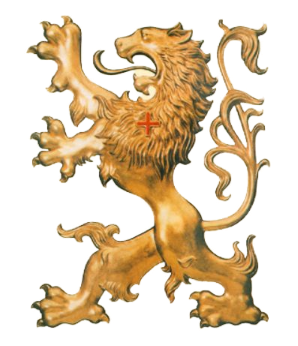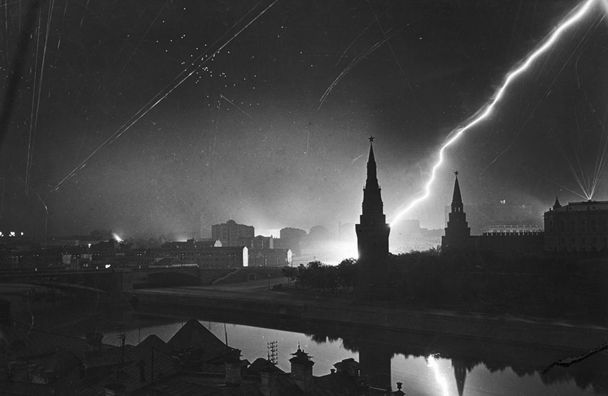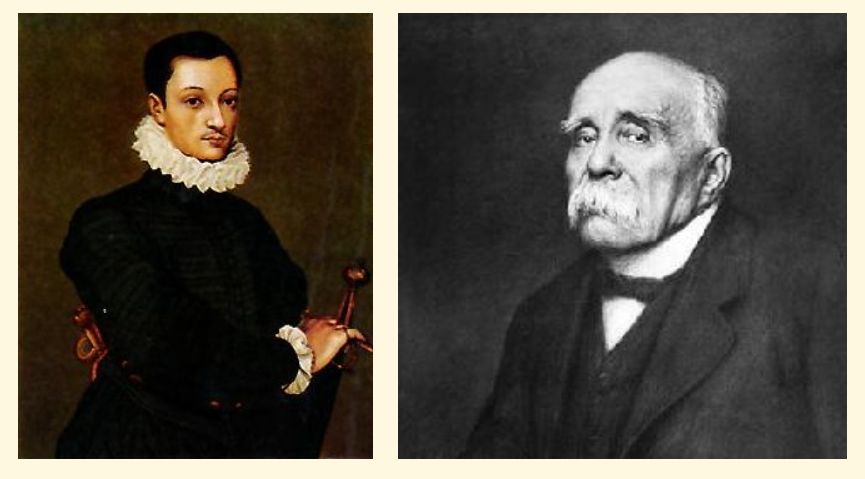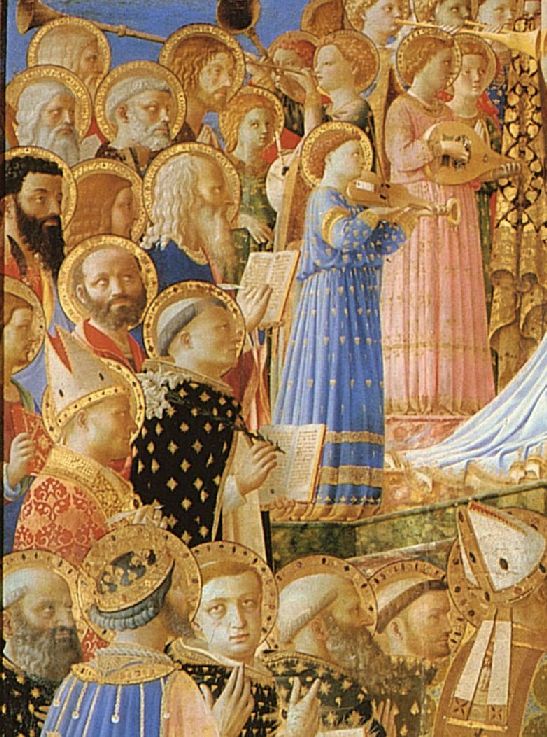|
Plinio Corrêa de Oliveira
The agony and death of Stalin
Saint of the Day, January 13, 1975 (without revision's author) |
|
|
This almost could be called “the devil of the day.” It is about the agony and death of Stalin. The text is from Twenty Letters to a Friend, a book by Stalin’s daughter, Svetlana Alliluyeva published in 1967: His breathing became shorter and shorter. For the last 12 hours the lack of oxygen was acute. His face altered and became dark. His lips went black and the features grew unrecognizable. The death agony was terrible. He literally choked to death as we watched. At what seemed the very last moment he suddenly opened his eyes and cast a glance over everyone in the room. It was a terrible glance, insane or perhaps angry and full of fear of death and the unfamiliar faces of the doctors bent over him. Then something happened that to this day I did not understand. He lifted his left hand as though he were pointing to something above and bringing down a curse on us all. The gesture was full of menace, and no one could say to whom or to what it might be directed. The next moment, after a final effort, the spirit wrenched itself free of the flesh.
This description is very good. I sustain that certain very well done narrations are worth more than a film or a documentary; for looking at a film or documentary a person has a number of simultaneous impressions but is not always able to select those impressions so as to pick out those that are really the most important and more apropos. In this concrete case, the picture is full of notes that you can imagine. Put before your eyes the vastness of the Kremlin, a mysterious fortress at the heart of Moscow, all surrounded with walls. Inside, a new drama is unfolding, this time the death of a dictator. And the dictator is a debauched man – Stalin – who is dying. It is an inevitable process of sickness or poisoning that attains a certain paroxysm and produces the tearing apart, the dilaceration. The soul is separating from the body. He is powerless, but his powerful body still fights to stave off death. Dying far removed from the grace of God, with no inkling of Religion, a criminal is being sent to Hell, the penitentiary of Creation Death, therefore, increasingly prostrates him; but he reacts with a sort of savage fury, a kind of ‘pre-Floodian’ biological and psychological strength. As everything in him is being shattered, he increasingly reacts with ever greater impetuosity and a resistance that almost becomes brashness, to the degree that the blows of death overcome him more and more. He is like a huge tree whose true diameter can only be gauged as the woodsman cuts the base of the trunk and sees how colossal the tree really was. So also is cut that man’s life. But we can see that he dies far away from God’s grace. Nothing around him conveys the idea of Religion. His whole life was that of an atheist and a proponent of atheism; a man, therefore, who even if he secretly believed in God, had so grievously offended Him that one is lead to suppose that he fell into the sin of despair, if not into that (also in the internal forum) of denying God’s existence. Therefore, he is dying with hatred, in desperation. His nature gasps for air, which becomes ever rarer; he is undermined from all sides. At a certain moment, he who had done nothing in life but rule through terror, led by the force of hatred -- realizing the situation he’s in and perhaps not perceiving quite well what has happening, perhaps believing he had been poisoned, opens his eyes, casts a terrible gaze at everyone and, confusedly feeling defeated, attempts to fight back. He raises his left arm threateningly – it’s the only thing he knew how to do. A couple of seconds later, God calls his soul for the judgment. His arm drops and he is nothing but a corpse. The man who had hated and governed through brutality throughout his life, this man now caves in, breaks down and crumbles. Then, the rigor mortis sets in. A person who knows how to interpret these scenes with the eyes of the Faith will say that only one thing remains: God’s victory. The man did everything and then it was over. When God decided to call him, he was unable to extend his life even for a minute. He was lying there completely crushed: a cadaver. He no longer was anything, had anything, or could do anything. He was liquidated. The futility of revolt, the uselessness of atheism and hatred all become manifest at that extreme moment; because God has won completely. And Stalin appeared before the judgment seat of God like anyone else; like any little, poor and insignificant soul without personality. He, who from some standpoints had been a giant, now appeared, miserable, before the throne of God. Everything is so tiny and insignificant before God! Stalin, the criminal, is now cast into Hell, the garbage can and penitentiary of Creation, perhaps at the same time as some little soul is being brought to God’s bosom to adore Him for all eternity. End of story. This is the end of hatred and a clear manifestation of its uselessness. Cast to the margin of the whole plan of Creation, no longer taken into account for anything whatsoever, despised and refused, Stalin has moved from the Kremlin directly into Hell, where the infernal Farandole is just starting. Feeling God’s hatred is incomparably more terrible than dying. Thus ends the power of those who defy God, Our Lord If cutting one’s finger off is so terrible, we can imagine how terrible is the hour when a person is torn apart as the soul is torn from the body. As a soul being sent to Hell appears before God, already in that terrible torment it feels the hatred of God. And God’s hatred is incomparably more terrible than dying. Having been judged, the soul plunges into Hell. And in Hell, it already feels the fire that will never extinguish, hear the raucous laughter and feel the eternal tortures, insults and humiliations by each one of those who find themselves there. Such is the reception of a bad soul. While the souls that enter Heaven are received with a concert of harmony, the bad souls going to Hell and are received with a sinister aggression by everyone, laughter of unhappiness, mockeries, horrors, dilaceration. We know that [the great] St. Therese of Jesus saw her place in Hell; and she tells how those places are extremely hot burning ovens laid out in beehive-like patterns, with a cell for each person; but a person cannot fit into it entirely and has to be folded in half in a horrible position; he is shoved into it and burns there for all eternity in the most complete darkness and despair. So Stalin falls all the way from the Kremlin, the pinnacle of power, into that destruction of all power, complete annihilation. He proffers a last blasphemy, makes a last supreme act of hatred, and then his punishment comes. He is crushed and that’s the end of it. Thus ends the power of those who defy God, our Lord. However terrible his death may be, a Catholic has the notion he is moving toward glorification, apotheosis Is it worthwhile to comment on this? I think so, in order for us to see the difference between it and the death of a Catholic, however terrible it may be. If he dies lucid – not from a sudden death – as long as he has Faith he realizes that he is slowly detaching himself from a mortal body which is a carcass that holds him and prevents him from seeing God; and that within one minute, half a minute or ten seconds he will go through a tremendous shock but will be placed before the beatific vision and then enter endless and complete happiness. He will see God with indescribable perfection; and at the same time he will see all souls in Heaven, beginning with Our Lady, all the Angels, the celestial Paradise, which is incomparably higher, more beautiful and nobler than the earthly Paradise; and there he will have joys that are endless and cannot possibly be described. So while he increasingly feels that death is destroying him, he knows that he is not moving toward humiliation. He has an idea that he is moving toward glorification. He is about to receive his crown of glory. In these conditions, the death of this man is the path to what could be called apotheosis. The last horror is the moment when all horrors cease and a happy eternity begins. Man feels the love of God as if gushing upon him, involving him completely, drawing him to Himself, restoring in him all the wounds, curing all the pains life had inflicted, and placing him into ineffable happiness. We can have an idea of this through the visions of mystics. All mystics describe the state of ecstasy as being one of unfathomable happiness, even if it lasts a few fleeting moments; a state of indescribable happiness. A mystic on this earth only has in passing, and very incompletely, I believe, what a soul has in Heaven seeing God face to face. This is how death is presented to the mystic. Facing the “irreparable outrage of time” a man with Faith says: “I am marching toward my resurrection.” The other day I heard about a comment made by an old and emaciated lady who covered part of her face whenever she faced a mirror. That brought to my mind the French expression, des années l'irreparable outrage – the irreparable outrage of the years. It really is an outrage that no one notices in anyone: old age slowly but surely outrages man – and this is found even in the Chanson de Roland; in Charlemagne’s lucid old age there is an episode in which he brings up the idea of going to help Roland and a coward comes up and says, “Do you not see, Sire, that you have fallen back into infancy and are no longer capable of reasoning well? Do you not see that this is no time to go help your nephew?" It is an outrage, an insult to hear something like that. But a man or woman with Faith would see this emaciation and say, “I am marching toward my resurrection. Those behind are marching toward their old age. I am moving toward resurrection.” This is how the line moves on: Corpse, dust, resurrection. One looks to one’s own body and says, “My flesh will resurrect! And it will resurrect to eternal happiness!”
Clemenceau v. St. Louis Gonzaga Imagine Stalin, still healthy, sitting by a fireplace at the Kremlin thinking about his domains and about that fire. How is the other fire like? Then he looks at his hand, thinking that his flesh will resurrect in order to burn eternally. What a horror! Some time ago I read the life of Clemenceau. He was an atheist and as President of the French Council of Ministers, during the First World War he exposed himself with great courage in many battlefronts. And having attained extreme old age he would sit for hours on end, unable to stop thinking about death. He knew well the reason why. Not so with a Catholic. Once St. Louis Gonzaga was playing a kind of bowling game in the novitiate of the Society of Jesus and they asked him – and all the novices – what they would do if they knew the end of the world would come in fifteen minutes. A novice answered: “I would stop to pray;” another said something else. Calmly, St. Louis responded, “I would keep playing.” Such is the serenity of a just soul. How different this is from the end of Stalin! How marvelous it would be to imagine St. Louis Gonzaga playing bowling at the end of the world and then he sees that the ground begins to shake. He says, “Well, now we’re no longer able to play. Let us sit down and await the Son of Man, Who is coming in all pomp and majesty!” This is how different the two ways are. It is always good to think about it.
Paradise (detail - Fra Angelico) |
|





